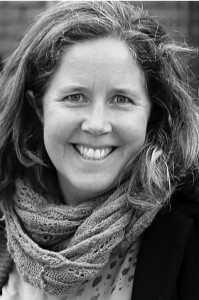Heidi, 42 – Mother-to-two, artist & teacher-in-training who recovered from pneumococcal pneumonia, MELBOURNE – May 12, 2016
 Mother-to-two young children, artist and secondary school teacher-in-training, Heidi, 42, Melbourne developed a severe episode of the often fatal lung infection, pneumococcal pneumonia, after returning home from a family holiday to Fiji, in early August, 2014.
Mother-to-two young children, artist and secondary school teacher-in-training, Heidi, 42, Melbourne developed a severe episode of the often fatal lung infection, pneumococcal pneumonia, after returning home from a family holiday to Fiji, in early August, 2014.
Shortly after arriving home, Heidi experienced extreme fatigue and breathlessness, before visiting the doctor.
Two doctor visits later, she was diagnosed with pneumococcal pneumonia and hospitalised for three nights.
Following a four-month-long battle with the potentially life-threatening infection, Heidi is now in full recovery, and is studying to become a high Visual Arts school teacher.
This is Heidi’s story.
“We visited Fiji for a family holiday in August 2014, and while we were there, my then five year old son contracted the flu,” said Heidi.
“It wasn’t until we returned to Australia that the flu had a ripple effect on both my immediate and extended family, whereby everyone seemed to develop the flu at some point or other.”
The infection, which hit Heidi and her husband, Peter, the hardest of all family members, soon developed into pneumococcal pneumonia for Heidi, and pericarditis (swelling and irritation of the pericardium, the thin, sac-like membrane surrounding the heart) for Peter.
Heidi visited the doctor on two occasions, underwent some chest X-rays, and was subsequently diagnosed with a partially collapsed lung and pneumococcal pneumonia, and advised to visit hospital immediately.
Heidi was admitted to Linacre Private Hospital, Melbourne, for three days of rest, where she began to recover from the serious infection. However, upon returning home, she soon fell back into her daily routine, and continued to be plagued by exhaustion.
“I couldn’t walk 200 metres without feeling tired and exhausted. My breathing was laboured and no matter how much I ate, I had no energy whatsoever.
“Every day I aimed to do some basic house work, such as cleaning the kitchen or unpacking the dishwasher, but that would leave me feeling completely exhausted, and I would have to rest for three hours,” Heidi said.
Two months post- hospitalisation, Heidi began to feel slightly better, although her breathing was still restricted. She sought professional advice from her doctor once again, who suggested she visit a physiotherapist who specialised in breathing exercises as a form of physiotherapy.
“The physiotherapist did an amazing job. He pointed out the restriction in my chest and taped my shoulder blades back to open up my chest.
“After three weeks of physiotherapy, my breathing had improved dramatically. It was he who really helped me turn the corner, health-wise,” said Heidi.
Heidi mounted a full recovery from pneumococcal pneumonia four months post- diagnosis, and was then vaccinated against the flu. Ever since, she has had an annual flu vaccination to ward off further respiratory infections.
“I do however worry about experiencing a relapse of pneumococcal pneumonia.
“If a pneumococcal pneumonia vaccination was offered to me in the future, I would absolutely have it,” Heidi said.
